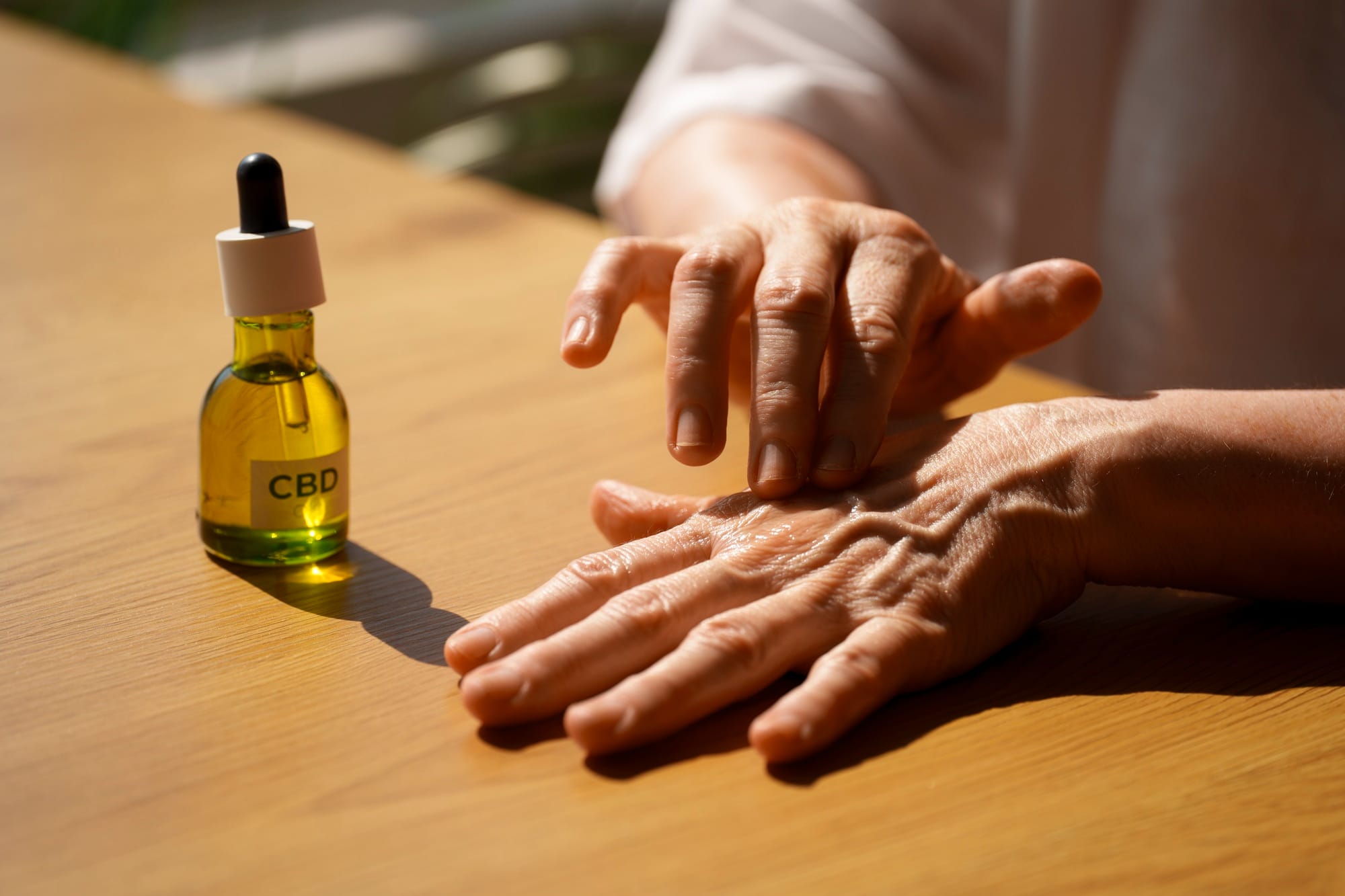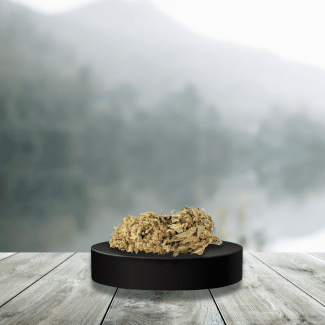
CBD and Parkinson's disease: a promising avenue against the symptoms?
Understanding CBD and its properties
What is CBD?
Cannabidiol, or CBD, is one of several cannabinoids found in the cannabis plant. Unlike THC (tetrahydrocannabinol), which is the main psychoactive component of cannabis, CBD does not cause psychotropic effects. This means that it does not alter the consumer's state of consciousness. In recent years, numerous studies have suggested that CBD may have therapeutic effects for various medical conditions, including Parkinson's disease .
The mechanisms of action of CBD
CBD interacts with the human body's endocannabinoid system, a complex network of receptors and neurotransmitters that regulate various physiological processes such as pain, mood, sleep, and the immune system. CBD appears to primarily influence the brain's CB1 and CB2 receptors, as well as other molecular targets like serotonin receptors and TRPV1. These interactions may offer potential benefits in reducing some of the symptoms associated with Parkinson's disease.
Potential Impact of CBD on Parkinson's Disease Symptoms
Reduction of motor symptoms
Some Parkinson's patients report that using CBD helps reduce tremors, muscle rigidity, and improve their gross motor skills. Although clinical studies are still limited, several investigations have shown that CBD may offer a significant reduction in motor symptoms in some people. The anti-inflammatory and neuroprotective effects of CBD could play an important role in these improvements.
Improvement in non-motor symptoms
Non-motor symptoms such as anxiety, depression, and sleep disturbances are often overlooked but represent a significant portion of the burden of Parkinson's disease. CBD has been shown to have anxiolytic and antidepressant properties, which could be beneficial in treating these non-motor aspects. Additionally, preliminary studies indicate that CBD may help regulate sleep cycles, contributing to a better quality of nighttime rest for people with Parkinson's.
Scientific studies and results
Clinical Trials on CBD and Parkinson's Disease
Although much evidence remains anecdotal, there are a growing number of clinical trials exploring the potential benefits of CBD for Parkinson's disease. For example, a study by the University of São Paulo found that 300 mg of CBD administered daily over a six-week period helped reduce insomnia and anxiety in participants with Parkinson's.
Preclinical results
In addition to clinical trials, several animal studies have shown that CBD may have neuroprotective effects that slow the progression of neurodegenerative diseases such as Parkinson's disease. For example, a study in animal models demonstrated that CBD could mitigate neuronal damage caused by toxic substances mimicking the effects of Parkinson's disease.
How to use CBD for Parkinson's disease
Different forms of CBD
There are different forms of CBD available for consumption:
- CBD Oil : Typically taken under the tongue for rapid absorption.
- Capsules and tablets : practical for precise dosing.
- Sweeteners and infusions : easy to incorporate into daily meals.
- Topical : creams and ointments applied directly to the skin to relieve specific pain.
Dosage and precautions
Determining the right dosage of CBD is crucial and can vary from person to person. It is recommended to start with a low dosage and gradually increase until the desired effect is achieved. It is also essential to consult a healthcare professional before starting any CBD treatment, as CBD could interact with other medications used to treat Parkinson's disease.
Current barriers and limitations
Limited search
Despite the encouraging evidence, research into CBD for Parkinson's disease is still in its early stages. More long-term studies are needed to fully understand the effectiveness and safety of CBD in this setting. Many current studies are limited by small participant samples and varied methodologies.
Regulatory issues
Legislation regarding CBD varies greatly from country to country and even region to region. This complicates patient access to CBD products and makes it difficult for researchers to conduct rigorous, controlled studies. The stigma surrounding the use of cannabis derivatives also continues to be a barrier to the popularization and acceptance of CBD as a serious treatment option.
Conclusion
In summary, CBD represents a promising avenue for supporting the symptoms of Parkinson's disease. Its potential therapeutic properties, for both motor and non-motor symptoms, make it an attractive option for patients. However, further research is needed to validate these effects and to overcome current regulatory hurdles. Pending new discoveries, CBD remains an avenue to explore with the support of a health professional.
















